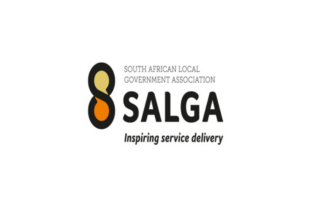Smaller transport operators are finding it increasingly difficult to operate in a challenging environment where pressure on margins, volatile fuel prices and increased operating costs are placing stress on their profitability – especially in cases where they rely on a ‘single contract’ for their survival.
“Operating outside large metropolitan areas and primarily serving the agriculture and mining sectors, the role of smaller transport operators in their local and regional economies is often underestimated,” says Toni Fritz, Head of Vehicle and Asset Finance – Business at Standard Bank. “Without these transport contractors, farmers and mine operations in far-flung corners of the country would find it difficult to move products and commodities. Within their towns where fuel, service and supply facilities, drivers and local labour rely on the transport sector, their contribution to the economy is even more important. “Some of these smaller operators rely on single medium to long-term contracts with a single customer to finance their operations. Although this gives them certainty over the contract period, there are several factors that restrict them from opening up their businesses to further opportunities,” says Fritz. Inhibiting factors include: • Using horse trailers that are tailored to a customer’s needs. If a transporter is carrying coal, the trucks he or she uses in the fleet are configured to meet these particular requirements. Therefore, it is difficult to carry other loads that either do not fit the configuration of the vehicle or that run the risk of contamination. • Single contracts, especially in the mining sector, involve collecting of raw materials at one point and conveying it to another. The cycle is then repeated. For the operator, this means having to return to the originating point without revenue producing load. • The shortage of suitably qualified drivers and field service personnel.• Volatile fuel prices that are subject to change at short notice, making it difficult to budget accurately when tendering for contracts. Toll fees add further to operating costs.
• In a market crowded with operators, being forced to aggressively reduce margins to obtain business. Although smaller operators can often work off a lower cost base than larger transport companies, they have to work equipment harder. This has consequences for fleet reliability as scheduled maintenance can sometimes be sacrificed to meet delivery deadlines or bolster margins. • If the business presents financials that do not support the finance requirements on its own, the transport operator is forced to ‘fit’ financing of equipment into the contract’s terms. Meaning that equipment is likely to be financed over a shorter time period, placing stress on monthly cash flows. • Industrial action in their operating sectors that can have a negative impact on the value and number of loads carried. The result of these pressures on smaller contractors is increased scrutiny by financial institutions. This often occurs in times of economic stress, when companies are seeking financial assistance to bridge gaps in their cash flow shortages or even acquire new equipment. “The primary responsibility of any bank is to manage risk and ensure that transport operators are able to meet their commitments. This sometimes requires that customers’ cash flows are ‘stress-tested’ to assess their sustainability under different scenarios. In this case, the ability of the operator to diversify their operations and the strength and duration of single contracts become critical factors,” says Fritz. “As we understand the needs of the market, we actively support the growth and sustainability of smaller contractors within reasonable risk parameters. “There is no doubt, however, that many small contractors are beginning to feel the strain of the ongoing economic downturn. It is important that as soon as signs of financial stress become evident that operators approach the bank for assistance and advice. The sooner the step is taken; the sooner plans can be put in place to assist viable operations to meet financial challenges.





